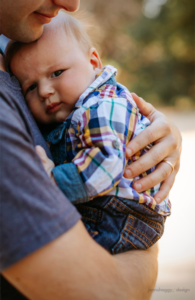By Iris Farrou
17 Oct, 2023
Childhood Health, Fatherhood, New Moms, Prevention, Procedures, Toddler Health, Your baby's health
allergic to, Allergy to medicine, antihistamines safe for babies, asthma, Baby Allergies, Blood test for babies, cats, dogs, dust, dust allergy, exzema, food sensitivity, How do I know if my baby has allergies, how to diagnose, Infant, is allergic, mold, Pediatric Allergist, Pediatrician, pets, toddlers, What age is safe for allergen exposure, what are the symptoms of anaphylactic shock
 We all know babies are fragile, and none other than parents of a newborn are more aware of this–and worried! Newborn babies can’t tell you what’s wrong with them, so the guessing game is nonstop, and the more you see your baby in distress, the more your worry skyrockets. Although parental anxiety may suspect the worst case scenario, sneezing and a runny nose, red eyes and itchiness could also just be signs of your baby experiencing allergies.
We all know babies are fragile, and none other than parents of a newborn are more aware of this–and worried! Newborn babies can’t tell you what’s wrong with them, so the guessing game is nonstop, and the more you see your baby in distress, the more your worry skyrockets. Although parental anxiety may suspect the worst case scenario, sneezing and a runny nose, red eyes and itchiness could also just be signs of your baby experiencing allergies.
Environmental and Seasonal Allergies
In fact, even very young kids can be allergic to pollen, dust, pet dander, and mold. Babies are more likely to experience allergies to foods and eczema–especially if you have a family history of those, as well as asthma. No region is safe from allergy triggers, but if you live in nature, are in close proximity to more allergens, have indoor pets, and generally enjoy the outdoors your baby may be exposed to more allergens. If they do have seasonal allergies, then the symptoms will begin.
- Itchiness and tendency to rub the eyes, ears and nose, as well as puffy or watery eyes
- Sneezing, wheezing, and frequent mouth breathing
- Dry cough with clear mucus, and possible shortness of breath
- Irritability or excessive fatigue
Food and Medicine Allergies
Food and medicine allergies have different symptoms, which are usually seen immediately after consumption of the offensive food or medication, within a few minutes or an hour or two later at most. If your baby is allergic to medication and their reaction is hives or a rash, that may take a few days to develop. However, immediate reactions may include hives, itching, shortness of breath, vomiting, nausea, or abdominal pain. Good news is that even if other symptoms are present, anaphylaxis is rare in babies.
Treating Allergies in Babies
Even though as adults we’d rush to take an antihistamine for our allergies, this is not recommended for babies under the age of 2. The safest treatment is to reduce your baby’s exposure to the allergen: if it’s pet dander you may want to limit the time spent with pets and close off certain areas in the house; for environmental allergies you may have to keep your windows closed and invest in an air purifier; food allergies will mean eliminating the foods with allergens and possibly consider w hether allergens may transfer to your baby through breastfeeding. You should consult with your pediatrician before administering any medication, even topical skin medications such as hydrocortisone cream.
Diagnosis
The good news is that even though your baby may not be able to articulate what’s going on, your pediatrician can perform a skin test to determine possible allergies– a test usually safe on anyone over 6 months of age. A blood test could also be done for younger babies, though it is not as sensitive as a skin test. Food allergens are usually determined by process of elimination, which can be a long process as you take out the allergens from your baby’s diet one by one every week. However, at the very least when you see a difference you will know what not to feed your baby!
More
By Iris Farrou
15 Aug, 2023
Diet & Exercise, Health Conditions and Pregnancy, Heart health, Lifestyle Tips, New Moms, Parenting, Pregnancy, Prevention, Women's Health, Your baby's health
Can I use antiperspirant while pregnant, Dehydration prevention, Diet during hot summer, Dizziness, Effects of overheating on pregnancy, Exercise During Pregnancy, Fainting Prevention, high temperatures, Hot Flashes during Pregnancy, How to stay hydrated while pregnant, Overheated, Overheating while Pregnant, Pregnancy, pregnant, Protecting my baby in the heat, Regulate Body Temperature

In some parts of the country the weather is starting to cool down at this time of year, but there are still areas being affected by heatwaves. Even if you’re not in the Midwest, the South, or any other part of the US where heat persists well into September, keep in mind that bigger cities suffer higher temperatures regardless. When you’re pregnant, you have an increased amount of blood in your body, which can make you feel hotter all the time. If you combine that with the summer heat, things can get really uncomfortable…
It’s a good idea to always be aware of the risks that come with a summer pregnancy:
- You are more likely to become overheated, and suffer from dizziness, nausea, headaches, or even muscle cramps.
- With that being said, keep in mind that the chances of fainting, or losing your step and falling, are higher: this could result in a more serious injury and endanger your baby’s health–even bringing on early labor or placental abruption.
- Dehydration is one of the risks associated with overheating. If your temperature is consistently above 101 degrees, you should be seeing your doctor. High fever– especially in the first trimester–has been shown to impact fetal development, particularly the fetal heart structure and neural tube defects.
- If you work outdoors, if your job requires manual labor, if you are working in a building that’s not climate controlled, or if you work in a commercial kitchen, you should know you are at higher risk of overheating while pregnant.
Though being pregnant is not the same experience for everyone, and not all people have the same advantages, opportunities, and support from family and friends during their term, the following steps are recommended so as to keep you and your baby safe:
- Since you are liable to overheat when pregnant, try to stay out of the heat as much as possible–especially if the outside temperature is higher than 90 degrees.
- Know that if your body temperature is higher than 102 degrees for more than 10 minutes, that puts you at a higher risk for heatstroke.
- Swelling and pregnancy go hand in hand, and in the summer heat this may get worse. Try to elevate your feet as much as you can, and stretch often. If you can, avoid standing for long periods of time.
- Your body is working for two, so with a higher blood volume, you will be sweating more. That’s your body trying to keep you cool: drink lots of water to avoid dehydration, and try to wear clothes that allow heat to escape.
- Underarm antiperspirant is not your friend: you need to allow your body to regulate its temperature, so you don’t want to trap heat in you. Try to wear light, breathable fabrics that help you cool down, and always use sunscreen to protect your skin from overheating.
- If you are exercising, it is best to stay inside and use AC– it is the best thing you can do for your safety to be in climate controlled environments, drink as much water as possible, and cool down every chance you get.
- Avoid the sun, avoid high sodium foods, and avoid all other drinks but water: non-alcoholic cocktails or other drinks have sugar and other ingredients that are not helping your cause. Water should be your beverage of choice.
Always trust your instincts when it comes to how you are feeling, and always listen to your body: even if the environment is seemingly cool and safe, if you feel that something is not right, follow your gut and seek medical attention.
https://www.heart.org/en/news/2019/07/01/summer-heat-brings-special-health-risks-for-pregnant-women
https://www.cdc.gov/niosh/topics/repro/heat.html
https://www.unitypoint.org/news-and-articles/10-things-no-one-expects-during-a-summer-pregnancy
More
By Iris Farrou
27 Jul, 2023
Childhood Health, Fatherhood, Lifestyle Tips, New Moms, Parenting, Postpartum, Toddler Health, Your baby's health
are strollers too hot in the summer, Baby, Baby Safety in Summer, how do I keep my newborn safe in the sun, How to keep my baby from overheating, is central AC safe for my baby, keep my baby cool, keep my infant cool, new dads, new mom advice, new moms, newborn body temperature regulation, Toddler, toddler overheating, what clothing is best for baby in hot weather, what time of day is best to go outside during summer with newborn
 If you’re spending your first summer with your baby, there are a few things to keep in mind about newborn babies and the summer heat so everyone can remain safe and have an enjoyable summer. Depending on which part of the US you live in or are visiting this summer, keep in mind that the heat may continue into the fall months–or it may be humid heat rather than scorching sun. Either way, the key information to remember is that babies cannot regulate their own body temperatures– older children and adults are able to do so, but babies need extra assistance and protection.
If you’re spending your first summer with your baby, there are a few things to keep in mind about newborn babies and the summer heat so everyone can remain safe and have an enjoyable summer. Depending on which part of the US you live in or are visiting this summer, keep in mind that the heat may continue into the fall months–or it may be humid heat rather than scorching sun. Either way, the key information to remember is that babies cannot regulate their own body temperatures– older children and adults are able to do so, but babies need extra assistance and protection.
- Overheating is very risky for newborn babies: if you are hot, then your baby is definitely hot as well. It is not unusual or “wrong” to keep babies in either a light onesie or only a diaper.
- Keep the temperature cool: if you have a central AC or a window AC unit and can afford to keep it running to keep the temperature lower than 77F degrees, that is ideal for a baby. Utilizing box fans on your windows for air circulation, as well as ceiling fans, is another method to ensure your baby stays cool.
- Help them sleep comfortably: especially when sleeping, your baby can be only in a diaper or swaddled using very thin, lightweight and breathable material. If you are not using central AC, make sure there is a fan in the room where your baby is sleeping–preferably not pointed directly at them, though.
- Proper hydration: you know that’s true for people of all ages, and the same goes for babies. If you notice infrequent urination or crying without tears, these are signs that dehydration has already occurred. Your instinct may be to give your newborn baby water, but that is a big NO in this case; their bodies cannot process water. Breastfeeding or milk formula in smaller and more frequent doses are a better solution. If your baby is already eating other foods, try to use more hydrating foods in their diet and provide more frequent–but still smaller–meals.
If the outside temperature is above 90 degrees, or 84ish with humidity, this is when your newborn, toddlers, or young children should NOT be outside, especially no more than 15 minutes if you absolutely have to be out. Try to not stay in the heat for too long, and seek shelter in air-conditioned spaces.
If you are using a stroller, keep in mind that it may not be the best idea to go for a walk in the heat—however, you should choose a stroller with a large canopy for extra protection for the warmer months. Avoid going outside in peak heat times of 10am-2pm, and dress your baby in breathable cotton clothing, preferably loose, that covers their skin as much as possible. Wide hats and sunglasses do look adorable on babies, and are also very much necessary.
https://www.michiganmedicine.org/health-lab/how-protect-your-baby-dangers-hot-weather
https://www.whattoexpect.com/first-year/health-and-safety/how-to-protect-children-from-extreme-heat/
More
By Iris Farrou
22 Jun, 2023
Childhood Health, Diet & Exercise, Fatherhood, New Moms, Parenting, Prevention, Toddler Health, Women's Health, Young adults & teens, Your baby's health
Anxiety, Baby, Boost Immunity, Child, food, Good Health, Immune System, Immunizations, Importance of, Pre-Teen, Probiotics, Sleep, Strengthen, Stress, Toddler, Vaccine, Vaccines, Vitamins, Wellbeing

The first concern every parent has when it comes to their child’s health is to keep them safe as much as possible. With extracurricular activities, summer camps, and attending school being a normal part of any child’s life, and going hand in hand with exposure to germs, it is often a challenge to help your children’s immune system stay strong. There are two routes that can assist you in this struggle: diet and lifestyle.
Before we talk about details on either path, there is one undeniable basis: make sure your children are up to date on important vaccines. For all people 6 months and older, the flu shot is recommended. COVID vaccines are now safe for younger ages as well–make sure all eligible family members are immunized, and keep checking with your pediatrician about being up to date on other necessary immunizations.
Diet and Supplements
In an ideal world, you have the time to prepare the best and healthiest meals for your family, and your children are never picky eaters. That would be a wonderful movie, but it is not the truth. Though pediatricians advise against using supplements and multivitamins to enrich your child’s diet–particularly because those are not well regulated in the US and their ingredients are not guaranteed–there are certain cases when supplements are needed.
Vitamin D is the first vitamin that helps children build a strong immune system; they usually would absorb it from the sun. However, if you do not live in a sunny area, there are certain kid-friendly foods that can help with that: fortified Vitamin D milk and yogurt, and orange juice. If you are lucky enough to be able to serve your child salmon, trout, tuna, and sardines then you are raising their chances of absorbing the necessary amount of Vitamin D. To use supplements, it is suggested that you first consult with your doctor and do a blood panel to see where your child’s Vitamin D levels are at, and what supplement is most appropriate for them.
Zinc is an important mineral that assists kids’ immune system. Oysters, red meat, and poultry are the best sources of zinc, followed by beans and nuts. If your child does not accept any of these foods, consult your pediatrician on how to proceed with a zinc supplement.
Probiotics and prebiotics play an important role in our immune system, specifically because they ensure good gut health. Probiotics ensure a good balance of helpful bacteria in our bodies, and in addition to yogurts you can try giving your child fermented foods–like pickles or miso–to help with that. Prebiotics also stimulate the growth of good bacteria, and they are mostly plant fibers: green bananas or plantains, yams, asparagus.
Lifestyle
Keep in mind that a healthy lifestyle is additional to a balanced diet when it comes to fortifying your child’s immune system. If you don’t have fruits and vegetables, as well as nuts and seeds in their diet, lifestyle changes can only do so much.
However, keep in mind that children need lots of sleep for their system to function properly and recharge. 12-16 hours for infants and around 10 hours for kids is what’s necessary to assist your kids in being healthy and help keep them on a regular schedule. Additionally, exercise and keeping active can do wonders for our immune system: encourage your child to be physically active at least one hour a day in some form of activity that they like; if they appreciate sports, so much the better! Physical activity doesn’t only contribute to overall good health, but it also helps manage stress. When we are stressed, especially in cases of heightened or chronic stress, our immune system is volatile and makes us more prone to infections. Be mindful of the stress levels your child may be facing, and encourage activities that make them happy and fulfilled.
https://www.health.harvard.edu/blog/boosting-your-childs-immune-system-202110122614
https://health.clevelandclinic.org/how-to-boost-your-kids-immunity/
More
By Iris Farrou
21 May, 2023
Fatherhood, Lifestyle Tips, Mental Health, New Moms, Parenting, Toddler Health, Young adults & teens, Your baby's health
Bedtime Routine, Bonding, Children's Bedtime, Emotional Regulation, Healthy Amount of Sleep, Healthy Family Dynamic, Healthy Sleep Habits, How to Create Bedtime Routine, Kid Bedtime, Nap, Regulation, Routine, Sleep, Sleep Schedules, Teenager, Teens, Toddler, Toddler Mental Health, Well-being

Whether it comes to you as an adult, or to you as a parent, or even to your family as a whole–regardless of your kids’ ages–sleep is a topic of discussion in all households. When you are a new parent, it’s almost certain that you will not sleep through the night unless your baby does; when you are parenting a toddler, you may find that bedtime is a point of contention. Like most things when it comes to parenting, the caregivers are role models: if we don’t have good sleep habits, and are not properly informed, how can we teach our children to follow a bedtime routine?
Importance of Healthy Sleep
Establishing a bedtime routine is helpful for not only our physical health, but also for our mental health, energy levels and ability to focus. When it comes to school-age children, receiving a good night’s sleep consistently improves their working memory, concentration and other cognitive skills, as well as attention. In the long run, this translates to better academic performance, readiness for school and other activities that require focus throughout the day, as well as sharp social skills.
Of course, this applies to teenagers and adults as well: the better your sleep routine is, the better equipped you are to face each day and/or help your body regulate your nervous system. Sleep habits are also an element of self-care that is often overlooked, and when implemented into a family routine can have a lot of positive effects on the family dynamic.
Bedtime Routine
To start building a healthy bedtime routine for your children, the first thing you should remember is that you are an active participant in it–it is a family activity. The second piece of advice is to keep the routine simple and repeat it at the same time every evening, with the same order. For example, when it’s close to bedtime you can start dimming the lights down and turning off screens. Then, you can start a 4-step bedtime routine of having a snack, brushing your teeth, putting on pajamas, and reading a book.
Some other activities that have shown positive effects when it comes to bedtime include a bath or diaper change, going to the bathroom, singing a song together or a lullaby, talking with your kid about their day, and of course cuddling/rocking. For both children and adults, the bedtime routine should consist of stress-free, non-stimulating, and soothing activities. Remember that physically and psychologically stressful activities can increase alertness, thus damaging the body’s ability to wind down.
Like most parenting activities, even a bedtime routine is an opportunity to not only bond with your child and create memories, but also help them grow into independent adults. A simple act such as leaving the room when your child is sleepy but not fully sleeping can teach them how to fall asleep on their own.
https://www.sleepfoundation.org/children-and-sleep/bedtime-routine
https://healthysleep.med.harvard.edu/healthy/getting/overcoming/tips
More
By Iris Farrou
29 Apr, 2023
Breastfeeding support, Fatherhood, Lifestyle Tips, New Moms, Nutrition, Parenting, Prevention, Your baby's health
Appetite, Baby Stomach Issues, Bloating, Breastfeeding, Common Baby Ailments, Diaper Rash, Ear Discharge, Fatigue, Fever, Newborn Sleep Patterns, Newborn Stomach Issues, Oversleeping, Overtired, Rash, Sensitive Eyes, Umbilical Cord

As the parent of a newborn, you may be worried sick if they get sick; sicknesses are common in babies, especially as they are developing their immune system. There are some minor ailments that are quite common in newborns, and though they should definitely be monitored, they are not usually cause for concern or a reason to visit the doctor.
Common Problems:
- Stomach bugs that can cause vomiting and diarrhea are relatively common in babies and young children. They usually last only a couple of days, and you should make sure to keep your baby hydrated while they are experiencing those symptoms.
- Coughs, colds, and earache also often occur in babies– they normally lessen as they build their immune system. Your child may experience a runny nose, sore throat, headaches, sneezing and a raised temperature.
- Ear infections are also very common, and often follow a cold. You may notice them if your baby’s ear looks a little red, there is general irritability and restlessness, your baby has difficulty feeding, and there may even be discharge from their ear.
- Excessive crying is something that every parent expects to deal with when they have a newborn: if you’ve made sure that your baby is fed, burped, warm, and in a clean diaper your next step is probably to hold them close and try to soothe them. You will learn your baby’s cries fast, and know when they sound abnormal or excessively distressed.
More Serious Issues:
- Umbilical cord problems may occur and you will likely notice them while you are caring for your baby’s umbilical cord. If the cord actively bleeds, you should call your doctor immediately. Similarly, contact your doctor if there is red skin around the base of the cord, foul-smelling discharge from the cord, and if your baby cries when you touch the cord or the skin next to it.
- Lethargy and sleepiness can indicate a more serious condition, especially if they appear to be completely different from your baby’s usual patterns. All babies spend a lot of time sleeping, but if your baby has trouble waking up and is disinterested in eating and their usual activities, you should call your pediatrician.
- Abdominal distension is a problem that can occur due to gas or constipation. After a large feeding, most babies’ bellies will stick out, but they should be soft between feedings. If your baby’s abdomen feels swollen, and they have not had a bowel movement for one or two days–especially if they are also vomiting–get in touch with your doctor.
- Babies tend to get rashes quite often, but if you are noticing a red/brown colored rash on your baby’s head or neck that is spreading across their body you may be dealing with early signs of measles. If your baby has a fever, sore eyes that are sensitive to light, and gray spots inside the cheeks, you should immediately seek treatment for measles.
https://healthforunder5s.co.uk/sections/baby/minor-ailments-and-illnesses/
https://www.healthychildren.org/English/ages-stages/baby/pages/Common-Conditions-in-Newborns.aspx
More
By Iris Farrou
26 Apr, 2023
Early Childhood Education, Fatherhood, Lifestyle Tips, New Moms, Parenting, Toddler Health, Your baby's health
Autism, Cognitive Abilities and Functions, Early Childhood Development, Genetic Disorder, Infant, Loss of Speech, Neurological Disorders, Overly Agitated, Rett Syndrome, Slow Development, Spectrum Disorder, Toddler

It is possible that you may not even have heard of Rett Syndrome, as it is a very rare disorder that almost exclusively affects females. According to Cleveland Clinic, 1 in every 10,000- 15,000 baby girls is born with Rett Syndrome–very rarely are males affected. In short, Rett syndrome is a genetic neurological disorder that affects the development of the brain and causes a progressive loss of motor skills and language over 4 stages: early onset; rapid deterioration; plateau and late motor deterioration. Most babies born with Rett Syndrome appear to develop normally until 6 months of age, when symptoms start to appear–most pronounced changes take place between 12 and 18 months of age.
What are the Symptoms?
As any new parent, you are likely very closely observing your child’s growth, and keeping a close eye on the development of their mental, linguistic, and motor skills. Know that before a diagnosis for Rett Syndrome is given, other conditions that may resemble its symptoms must be ruled out first.
- One of the first symptoms is being born with an abnormally small head–as the infant grows, there will be delayed growth in other parts of the body as well.
- Loss of movement and coordination abilities is another symptom. At the age when your baby should normally learn how to crawl, walk, or use their hands you may notice a rapid loss of these abilities.
- Loss of linguistic and communication abilities is often seen in children with Rett Syndrome as well. Children impacted by Rett may rapidly lose the ability to speak, or communicate in other ways; this can be accompanied by a loss of interest in their surroundings as well.
Some other symptoms closely resemble more common neurological disorders–like Autism Spectrum Disorder–since children may develop unusual eye and hand movements that are repetitive and seemingly purposeless, may become increasingly and easily irritable and agitated, display intellectual disabilities, or suffer from sleep disturbances.
How is it diagnosed?
As mentioned, since Rett Syndrome can resemble other neurological or genetic disorders, most professionals will approach it by process of elimination. Parents and caregivers play a big role in the diagnosis process as they can keep a detailed record of the child’s development and activities/responses.
If healthcare providers deem it necessary, or parents request it, then a simple blood test is performed to look for the gene mutation MECP2 that has been known to confirm the diagnosis of Rett Syndrome. Unfortunately, this mutation is quite random (and rare) so pre-genetic testing will not show any results. In fact, the chance of passing down Rett Syndrome from a healthy parent to their child is less than 1%. If someone in your family has been diagnosed with Rett Syndrome, you would want to bring this up with your healthcare provider, but Rett is generally not an inherited condition.
https://www.mayoclinic.org/diseases-conditions/rett-syndrome/diagnosis-treatment/drc-20377233
https://my.clevelandclinic.org/health/articles/6089-rett-syndrome#diagnosis-and-tests
More
By Iris Farrou
31 Mar, 2023
Fatherhood, Lifestyle Tips, New Moms, Parenting, Procedures, Your baby's health
Baby Healthcare, Infant Health, Infant Healthcare, Infant Vaccines, newborn expectations, Should I vaccinate my newborn, When should my newborn visit the doctor

If your baby is at the age when the first vaccinations are needed, it is understandable that there may be some stress surrounding the upcoming visit to the doctor. Of course, any doctor’s visit with a newborn is stressful, but it can be worse if you know there will be a needle poking your baby’s skin. Not a pretty image, but a necessary one! The first thing you can do to be adequately prepared for the situation is to educate yourself first. Read up on the first vaccines that your baby needs and the advantages that come with them; ease your mind by knowing how much safer your infant will be. You may find an easily accessible vaccine schedule from birth to 18 years at the Center for Disease Control.
Once you are more informed about the first vaccines your baby will be receiving, you can start preparing for the visit. A lot of nurses report that the number one factor that makes these first vaccinations difficult is the stress of the parents. It is important for your baby, and for the medical professionals, that you remain calm and as stress free as possible. If your baby feels you are calm, hears a soothing tone of voice from you, and picks up on reassuring messages, the calmer they will be and the easier the process will be.
To prepare for the visit, you can have a talk with your child about what will happen. You can use simple words, or imitate the motions that the doctor will perform to help them understand. Remain relaxed and upbeat while you are explaining this, and during the vaccination. Heading to the doctor’s office, you may want to bring your child’s favorite toys with you, or other items that give them comfort. That way, they will be able to focus on something pleasant.
If you are breastfeeding, it is a good idea to breastfeed right before your baby receives the vaccine. Breastfeeding is a great way to provide comforting close contact and help relax your child. You can also ask your doctor to give your baby something sweet two minutes before the shot: a small amount of sweetness can help reduce the pain of the shot. Another possibility is to ask for a pain relieving ointment or spray. This can be one your doctor provides you with and you apply before the visit, or a topical cooling spray that they will apply before the shot. Both options topically block the pain signals from the skin. Right before the shot, try to distract your child by pulling their attention away from the doctor; it can be as simple as calling their name, singing their favorite song, or telling a story. Keep the distraction going even after the vaccine is given.
After the shot is given, comfort your child by holding them close, or swaddling them. Close contact, whispers, and cuddles are all helping reduce the stress and distract from the pain. If your child has mild reactions from the shot, like topical swelling or a mild fever, don’t be alarmed as these are normal reactions. If something concerns you, however, always contact your doctor and seek further medical advice and help.
More
By Iris Farrou
10 Mar, 2023
Fatherhood, Lifestyle Tips, New Moms, Parenting, Queer Health, Reproductive health, Your baby's health
Baby Etiquette, health tips before meeting newborn baby, Meeting Your Baby, New Parents, Newborn, Visiting a baby, When can I meet a new baby

Whether you are a parent, a close friend, or a family member, the arrival of a newborn is exciting, and no doubt you are looking forward to meeting the new member of the group! Many close family members tend to directly assume they can visit the newborn, while friends and extended family may be a little more careful. However, there is no one-rule-fits-all when it comes to these situations. In fact, the key rule is to check in with the parents first as this is solely their decision: childbirth is a painful and difficult journey, no matter how rewarding it may be. The new family may or may not feel comfortable accepting guests.
What can both guests and hosts do to make this experience enjoyable, and most importantly, safe for the baby?
The 4 DOs
- Discuss with your partner beforehand how you want to handle guests: who is allowed to visit fresh out of the hospital and for how long? Communicate your decisions to family and friends.
- Check in with the new parents about the visit: schedule a visit, check in at the last minute, respect any changes; follow the new family’s rules.
- Be up to date with your vaccines, visit only if you are feeling well, wash your hands before touching the baby, and remove any jewelry from your hands.
- It’s very important to offer to help if you are visiting a family with a newborn: whether that’s bringing a meal, or taking their dog out for a walk, it can be of tremendous help to the new parents.
Here are some actions that are ill-advised when visiting a newborn:
The 4 DON’Ts
- Babies are susceptible to germs and viruses: don’t take your newborn into crowded, or loud, places before they’ve had time to build their immune system. If you need to get out of the house, ask for help taking care of the baby.
- Don’t bring little kids– while no doubt they are also looking forward to meeting the new baby, little kids carry the additional risk of germ exposure. Also, extra visitors can cause more anxiety for the new parents.
- Avoid putting your face close to the baby’s. Adorable as it may be, such close contact is a risk as mouths carry a lot of germs. Don’t be surprised if the parents ask you to wear a mask.
- Don’t take pictures of the baby without the parents’ permission! Most importantly, don’t post pictures on social media without asking the parents first.
Of course, this is not a comprehensive list of what you should or shouldn’t do when visiting a family with a newborn–just some basic rules you should follow to make it more comfortable for the new parents and to avoid any misunderstandings. Some families are ok with much more socialization than you may expect, and may actively seek it, while some others may choose to be more reclusive when they bring their new baby back home from the hospital. Always follow the family’s rules and decisions!
https://www.hopkinsallchildrens.org/ACH-News/General-News/New-Parents-and-Newborns-Are-Visitors-OK
https://www.owletcare.com/blog/7-key-rules-visiting-newborn
More
By Iris Farrou
13 Jan, 2023
Fatherhood, Lifestyle Tips, Mental Health, New Moms, Parenting, Toddler Health, Your baby's health
ADHD, Children, Learning Disabilities, Neurodivergence, Neurodivergent, Preschool, Toddler Mental Health

There is a general tendency for parents to become most concerned about their children’s neurological development when it’s time for their kids to join a preschool or other educational institution. A lot of schools are aware of, and keep an eye out, for behavioral patterns that may indicate a child is neurodivergent: this can span from what is commonly referred to as learning disabilities, to ADHD, and autism. Though schools can be a great resource in helping children with neurodiverse brains walk through life, the most important coping strategies and mechanisms come from the family unit itself. In fact, there are many signs well before a child joins the school system that they may have a neurodivergent brain.
What are those terms?
Neurotypical children are those whose brains develop in ways that are typical for their age and stage. About 1 in 5-6 children exhibit variations in their brain development, the most common of which are dyslexia, attention deficit hyperactivity disorder, and autism. These children can be described as neurodivergent. These differences are not something that needs to be treated, or fixed: rather, they are a part of natural variation. When we refer to treatments about neurodivergent children, we mainly talk about coping mechanisms by the child itself, the family, and the school system–in some cases, treatment does include medications as well, but in no case is the end goal to “fix” a child.
How do I recognize the symptoms?
Because we are talking about variations in the brains and its functions, there is no clean-cut way in which a parent can determine their child is neurodivergent. Instead, there is most usually a combination of signs in their behavior–and if you discuss the details of those with a physician or therapist, you can gain more insight into how to best accommodate your child. Let’s start with some symptoms that if persistent and repeated over the course of a few months, may indicate ADHD:
- Trouble with details and making careless mistakes
- Trouble focusing on tasks of at play, and trouble focusing when an adult speaks to them
- Challenges with following through on instructions, tasks, or homework as well as organizing
- Difficulty keeping track of their belongings and/or remembering things in daily activities
These are just a few of the signs of inattention, and if your child also displays issues of impulsivity or hyperactivity over a consistent period of time–usually more than 6 months–and seems to display 6 or more signs, you may want to consider consulting with a specialist.
https://raisingchildren.net.au/guides/a-z-health-reference/neurodiversity-neurodivergence-guide-for-families
https://www.iowaclinic.com/primary-care/specialties/pediatrics/early-warning-signs-adhd-children/
More
 We all know babies are fragile, and none other than parents of a newborn are more aware of this–and worried! Newborn babies can’t tell you what’s wrong with them, so the guessing game is nonstop, and the more you see your baby in distress, the more your worry skyrockets. Although parental anxiety may suspect the worst case scenario, sneezing and a runny nose, red eyes and itchiness could also just be signs of your baby experiencing allergies.
We all know babies are fragile, and none other than parents of a newborn are more aware of this–and worried! Newborn babies can’t tell you what’s wrong with them, so the guessing game is nonstop, and the more you see your baby in distress, the more your worry skyrockets. Although parental anxiety may suspect the worst case scenario, sneezing and a runny nose, red eyes and itchiness could also just be signs of your baby experiencing allergies. 








